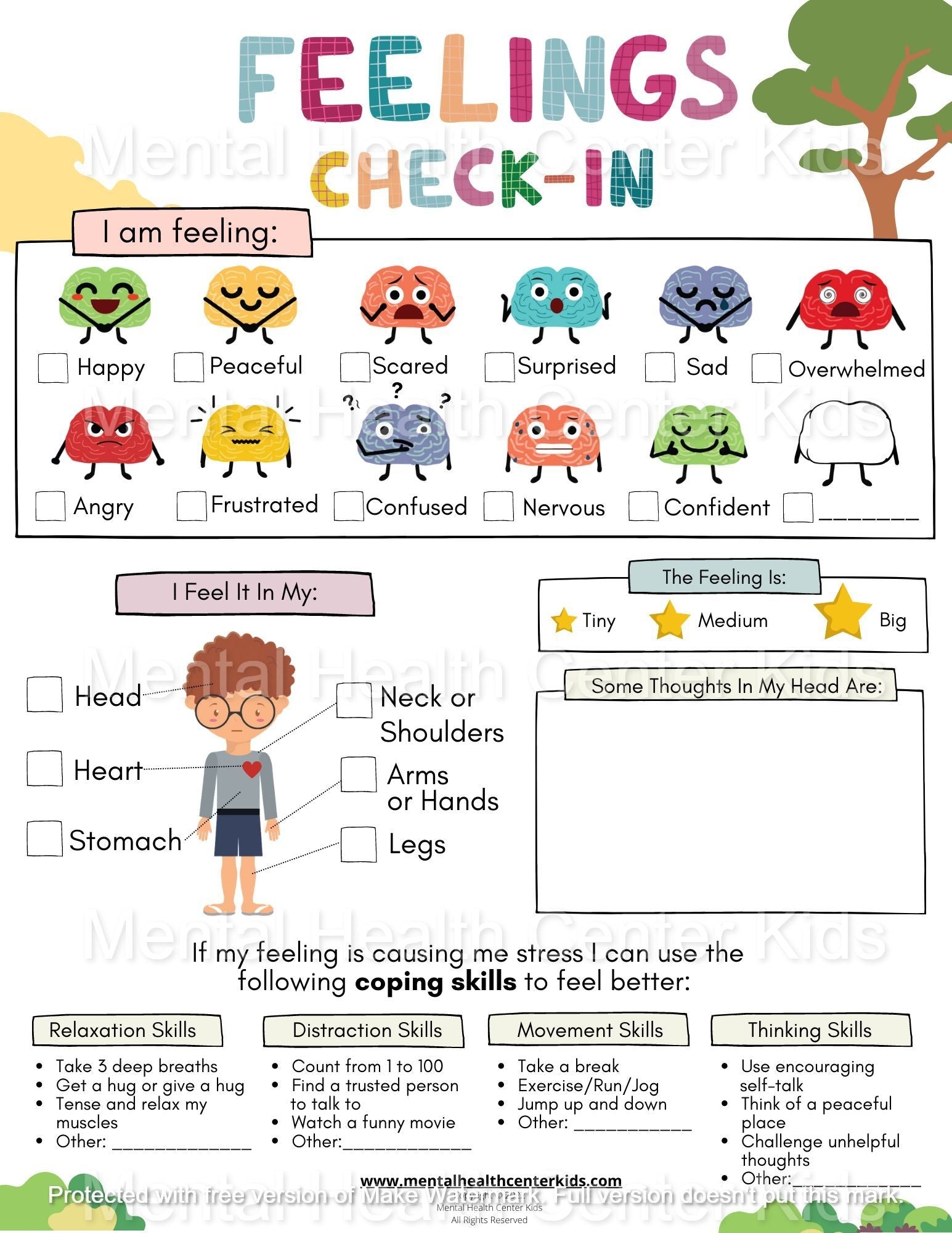Children often have a hard time expressing their feelings verbally, which can lead to frustration and misunderstandings. That’s why using worksheets that help them identify and communicate their emotions can be incredibly beneficial.
These worksheets are designed to help kids recognize different feelings, understand the reasons behind those feelings, and find healthy ways to express them. By using these tools, children can develop emotional intelligence and learn how to navigate their emotions in a positive way.
One type of worksheet that can be helpful for kids is a feelings chart. This chart typically includes a list of common emotions along with corresponding facial expressions, so children can visually identify how they are feeling. They can then use the chart to label their own emotions and discuss why they might be feeling that way.
Another type of worksheet involves drawing or coloring activities that allow kids to express their feelings through art. This can be a more creative and engaging way for children to explore and communicate their emotions, especially if they have trouble putting them into words.
Role-playing worksheets are also effective tools for teaching kids how to express their feelings in different situations. By acting out scenarios with a partner or a therapist, children can practice using appropriate language and gestures to convey their emotions effectively.
Journaling worksheets are great for older kids who enjoy writing. These worksheets provide prompts and space for children to write about their feelings, reflect on their experiences, and explore ways to cope with challenging emotions. Journaling can be a therapeutic and cathartic exercise for kids who prefer to express themselves through writing.
In conclusion, expressing feelings worksheets for kids are valuable resources for helping children develop emotional awareness and communication skills. By using these worksheets, kids can learn to identify, understand, and express their feelings in a healthy and constructive manner. These tools can empower children to navigate their emotions with confidence and resilience, setting them up for success in both their personal and social lives.
